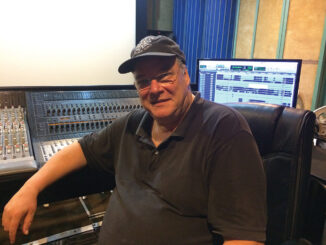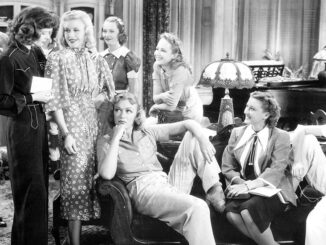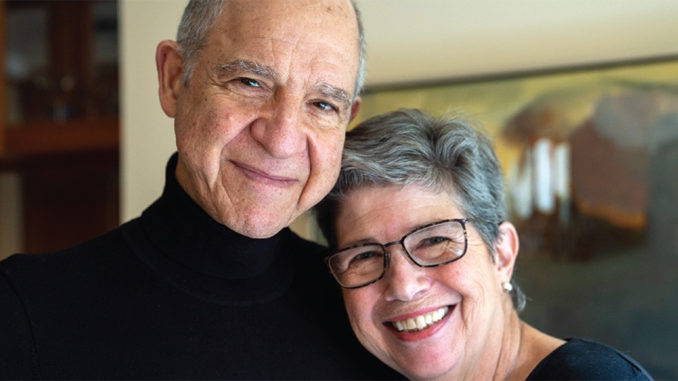
Why anyone would want to be a sound mixer is beyond me. You sit all day in a dark room with no windows. There’s a mixing board with endless dials, levers, buttons. You spend all day, hour after hour, dialing up music and dialing down music, dialing up sound effects, doors closing, guns shooting, birds chirping… Too much rain noise, not enough radio in the background, voices too low, too loud, crowds babbling… This goes on for weeks. With the film, the mixer doesn’t get out in the sun and fresh air — the next movie comes right in while the mixer stays sitting in the dark, in a closed room getting ready to dial in faucets dripping and footsteps.
Yes, there’s nobody better at it than Lee Dichter, but did he want to do it as a boy? When the other kids were playing baseball and going to the beach, was he home, keeping his room dark, screwing around with creating clocks ticking and bells ringing? You have to be a very neurotic kid to want to grow up to be a mixer. I don’t know why anyone wants the job, but I’m glad Lee has grown up neurotic enough to do it because he’s been a big plus to my movies over the years, and I hope he remains neurotic enough to continue.
Woody Allen
Colleague; Film Director
Lee Dichter is my friend, my mentor, my fellow nerd. What can I say here that isn’t known and spoken out loud by all of us. As I reflect on my start in this business and remember Lee showing the way, I think about his generosity in sharing his knowledge and experience. I don’t focus on his accomplishments and very long list of credits and accolades, but rather on his ability to be a magician at the board while making it seem like no big thing, like it was so natural. It is of great credit to Lee and great benefit to me that he was able to share so much of his work ethic, his client relationship skills and his great taste with so many of us.
Lee’s dedication to a film project was boundless to a fault. Even while being treated for cancer, Lee was in the mix room with us. Taking short breaks on the couch but always listening carefully, he persevered as he always did.
My first memory of being in a mix room is with Lee. I’d recently been hired by Sound One and they had just installed new console automation in his room. I had some familiarity with it so was tasked with assisting Lee as he started mixing with Alan Pakula. It didn’t take him long to learn the automation but he insisted I stay through the final mix anyway. Sitting with him at the board! This was a kickstart to my film education and the catalyst for my career goal. I wanted to become a mixer like Lee.
I cannot thank you enough, my friend.
Michael Barry, CAS
Friend/Colleague/Mentee;
Re-Recording Mixer
 Lee Dichter has touched so many lives through his illustrious career. In 2000, I was fortunate enough to become part of the executive team at Sound One. At the time, it was the foundation of the New York post sound industry and Lee was the foundation of Sound One. We had become part of a larger company and the industry was in flux, so we were able to adapt to the changes along with everyone. Lee was able to keep things comfortable for his many clients, so they felt like they had a home where they could create and laugh at the same time.
Lee Dichter has touched so many lives through his illustrious career. In 2000, I was fortunate enough to become part of the executive team at Sound One. At the time, it was the foundation of the New York post sound industry and Lee was the foundation of Sound One. We had become part of a larger company and the industry was in flux, so we were able to adapt to the changes along with everyone. Lee was able to keep things comfortable for his many clients, so they felt like they had a home where they could create and laugh at the same time.
Lee has taken the time to mentor others along the way and pass on his years of experience in teasing out dialogue when there didn’t seem to be a way, to make scores blossom with clarity and taste, and to interweave sound effects to create incredible dimension in his films. He not only was mixing for many of the top directors of the time, but was also working with many sound editors who were able to sit with him while he meticulously applied his skill to the tracks. I had the honor of collaborating with Lee on Mission to Mars and The Producers at the 54th Street mix stage. Each film had a room full of creative individuals, and all of us were having a great time putting these projects together.
I congratulate Lee for this evening’s recognition of all that he has done for motion pictures and motion picture sound.
Lon Bender, MPSE
Colleague; Sound Editor,
Re-Recording Mixer
 Back in the old days, Sound One was the center of post-production in New York and my good friend Lee Dichter was the center of Sound One. He was the lead re-recording mixer and the heart of the company. The very long list of his mixing credits reads like a catalog of New York’s motion picture history of the last 40 years.
Back in the old days, Sound One was the center of post-production in New York and my good friend Lee Dichter was the center of Sound One. He was the lead re-recording mixer and the heart of the company. The very long list of his mixing credits reads like a catalog of New York’s motion picture history of the last 40 years.
Lee was a mentor to all the young sound editors and assistants, myself included. He showed me the better ways of covering a scene and laying out the tracks, and he taught me how to blend sounds to come up with more interesting effects. Of course, a lot of this happened on the mix stage while we were working. I learned from his quiet way of pointing out my mistakes, and did better the next time.
When the Guild organized a contract for Sound One, Lee took the lead representing the technicians and engineers. He never shied away from confronting management. He stood up for all the people working under him and helped get the best deal possible.
In the studio, he often used the phrase “full coat integrity.” In the analog world, full coat was the fully emulsified strip of 35mm celluloid used to hold the multi-channels of a mixed track. The point of “full coat integrity” was to insure that all the necessary, but hard to hear, smaller sounds were incorporated against the louder sounds and music. The gunshots or explosions in a scene might cover a distant character’s footstep. But, rest assured, it was there in the mix.
The mix had integrity because the man had integrity. Aside from being a great artist and technician, he is one of the nicest people anyone could hope to meet. I congratulate him on winning the Fellowship and Service Award. It is well deserved.
Louis Bertini, MPSE
Friend/Colleague/Mentee; Sound Editor; Second Vice President, Motion Picture Editors Guild
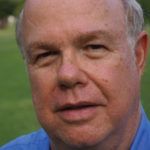 Lee Dichter is special. He is loved because he is special.
Lee Dichter is special. He is loved because he is special.
His life might make a good movie someday…
Larry Blake
Friend/Colleague;
Sound Editor, Re-Recording Mixer
 Lee is just the best. His ability to extract the last nuances from any dialogue and make it crystal clear is unparalleled in my experience. As well as being one of the loveliest of people, he is also an amazing diplomat, never putting forward his own views unless bidden, or choosing the exact moment to interject his thoughts. His lack of personal ego is remarkable in a field where there are all too many people who see themselves as stars. It is my privilege to have worked with this wonderful man on so many projects.
Lee is just the best. His ability to extract the last nuances from any dialogue and make it crystal clear is unparalleled in my experience. As well as being one of the loveliest of people, he is also an amazing diplomat, never putting forward his own views unless bidden, or choosing the exact moment to interject his thoughts. His lack of personal ego is remarkable in a field where there are all too many people who see themselves as stars. It is my privilege to have worked with this wonderful man on so many projects.
John Bloom
Friend/Colleague; Picture Editor
 Lee Dichter mixed the first film on which I supervised the sound. We had crossed paths before while I was in different crew positions on other films he mixed. But that first supervising gig was different with him, and there began a nurturing and mentoring that went beyond mixing a mere movie. At this point, I’ve lost track of the number of movies I brought to him to mix, and participated on the board with him. We’ve cried together, won awards together, shared life stories and worked with some of the best directors in New York. Lee is one of those egoless talents, with complete mastery of his craft and not afraid to share it, teach it or try to pass along a way of hearing dialogue that few have. I love the fact I can call him my friend.
Lee Dichter mixed the first film on which I supervised the sound. We had crossed paths before while I was in different crew positions on other films he mixed. But that first supervising gig was different with him, and there began a nurturing and mentoring that went beyond mixing a mere movie. At this point, I’ve lost track of the number of movies I brought to him to mix, and participated on the board with him. We’ve cried together, won awards together, shared life stories and worked with some of the best directors in New York. Lee is one of those egoless talents, with complete mastery of his craft and not afraid to share it, teach it or try to pass along a way of hearing dialogue that few have. I love the fact I can call him my friend.
Ron Bochar, CAS
Friend/Colleague/Mentee; Sound Editor
 I had the enviable good fortune to have Lee Dichter mix my very first film. Can you imagine what it was like for a completely wet-behind-the-ears filmmaker to be able to avail himself of the master’s talents right out of the starting gate? Lee was gentle, kind and forgiving of our ignorance, always ready with a suggestion that always made our film better. It was back in the analog days that we watched him mix backwards and forwards!
I had the enviable good fortune to have Lee Dichter mix my very first film. Can you imagine what it was like for a completely wet-behind-the-ears filmmaker to be able to avail himself of the master’s talents right out of the starting gate? Lee was gentle, kind and forgiving of our ignorance, always ready with a suggestion that always made our film better. It was back in the analog days that we watched him mix backwards and forwards!
Lee went on to mix most of the next six or seven films and series I made. The lengthy time spent in the dark together, sweetening the sound, allowed us to become more than collaborators and colleagues. We became friends, with each film anxious to catch up on family dramas that had taken place in the months between projects, watching as our children grew up and swapping trade stories. Lee, above all, is a kind, warm and thoughtful person who taught me so much. I’ll never forget the last day of mixing on our series on the Civil War. We delayed laying down the sound of the gunshot at Ford’s Theatre. For a few minutes, alone in the dark, Lee and I and our comrades, our eyes wet with tears, kept Abraham Lincoln alive.
Ken Burns
Friend/Colleague; Documentary Filmmaker
 When I arrived on the editing scene in New York, I spent my days throwing my resume around the Brill Building on my way to my night job at DuArt. Daunting as it all was, nothing was more intimidating than hearing about the mix, which would lead to a conversation about the masterful Lee Dichter, always spoken about with a warmth that impressed me. Studio L on the second floor was something to strive for — it only took a few years to get there.
When I arrived on the editing scene in New York, I spent my days throwing my resume around the Brill Building on my way to my night job at DuArt. Daunting as it all was, nothing was more intimidating than hearing about the mix, which would lead to a conversation about the masterful Lee Dichter, always spoken about with a warmth that impressed me. Studio L on the second floor was something to strive for — it only took a few years to get there.
Mambo Kings had a billion music tracks and my music editor, Tom Drescher, insisted I slide on up and show Lee what I intended for one particular sequence. I nervously approached Lee with my messy cue sheets, but he encouragingly pushed them aside and pointed to the faders. I stumbled my way through a first pass of the sequence, showing him what I intended, and he warmly reached over to the faders and quickly adjusted the pass into his mix. I quietly slid my Herman Miller Aeron back about six feet into the studio background and hid my embarrassment in hopes that we were, as they say, “moving on.”
Days later, I had the pleasure of witnessing Lee work a line of ADR that seemed impossible. I never saw anyone move his fingers across the faders in that way, breathing life into lifeless lines, as a violinist translates the simplest melody into an expressive musical phrase. I’ve never forgotten it and have spoken about it many times out here in Los Angeles.
Here’s to you, Lee! Thank you for inspiring and encouraging so many of us over the years!
David Carbonara
Colleague; Composer, Music Producer
 I’ve known Lee Dichter since the early ’70s. He was a mixer at Photo-Mag, and I was an editor working at Editing Plus on commercials. My first major ad campaign was Dr. Pepper, and Lee was the man. He was friendly, patient and easy to please. He made the jobs go smoothly with his abilities to make the sound better than it ever was.
I’ve known Lee Dichter since the early ’70s. He was a mixer at Photo-Mag, and I was an editor working at Editing Plus on commercials. My first major ad campaign was Dr. Pepper, and Lee was the man. He was friendly, patient and easy to please. He made the jobs go smoothly with his abilities to make the sound better than it ever was.
In 1980, I then had the pleasure of working with Lee on features. Our first together was Rollover, then The Soldier, Sophie’s Choice, The Muppets Take Manhattan, Dream Lover, Things Change, The Man in the Moon and Far and Away, to name a few. I loved working with Lee. It never felt like work. It was like putting icing on the cake.
I can’t think of anyone more deserving of this this award than Lee Dichter.
Anthony “Chic” Ciccolini III
Friend/Colleague; Sound Editor
 After having had the privilege of working with Lee on three different films — The Shipping News, An Unfinished Life and Casanova — I can absolutely state that I wish we lived, and worked, geographically closer. Mr. Dichter is a master re-recording mixer, a fact that is not open to debate. That Lee consistently is able to preserve almost all the dialogue scheduled to be looped for technical reasons comes as no surprise to anyone who’s ever worked with him.
After having had the privilege of working with Lee on three different films — The Shipping News, An Unfinished Life and Casanova — I can absolutely state that I wish we lived, and worked, geographically closer. Mr. Dichter is a master re-recording mixer, a fact that is not open to debate. That Lee consistently is able to preserve almost all the dialogue scheduled to be looped for technical reasons comes as no surprise to anyone who’s ever worked with him.
A great example happened while pre-dubbing dialogue on The Shipping News. An actor’s line was changed mid-sentence. I was told we were going with production and it wasn’t going to be looped. The A-side had the sound of office chair rollers under it. The character was pushing away from his desk on camera; the office chair was vintage, so the wheels rolling were a bit loud and had a great deal of rumble. The B-side of his sentence had no chair wheels under it. The abrupt end to the wheels rolling across the old wood floor was extremely obvious.
I had prepped a continuation of the wheels, but there wasn’t much in the clear, probably less than a second. I hoped we could play the repetitive handle down low, under the B-side of the line, and make it work. Lee managed to clean out a fairly broadband frequency to the point that you couldn’t really hear the wheels anymore. The actor’s line sounded like it was all one take. An amazing job!
Lee is a pleasure to be around. Warm-hearted and wise. My memories of working together during pre-dubs, one-on-one, are some of the fondest of my career.
David A. Cohen
Colleague; Dialogue/ADR Editor
 I don’t exactly remember the circumstances in 1990 when I met Lee for the first time, but now I can’t imagine a time when I didn’t know him.
I don’t exactly remember the circumstances in 1990 when I met Lee for the first time, but now I can’t imagine a time when I didn’t know him.
Lee is a consummate professional, with an old-school work ethic and a most impressive breadth of knowledge. What has always struck me the most is that he is incredibly generous of spirit.
I remember when we were mixing The Producers in 2005. Our director [Susan Stroman] was an old hat on Broadway, but a newbie when it came to film. Lee was so gentle with her, taking the time to answer every question she had, and accommodating her every wish as best he could — all with a smile.
In 2006, we pulled an epic all-nighter. The job was fast and difficult, and we were all intensely stressed out. But that morning, Lee breezed into the studio smiling and set an environment of calm and expertise. The following morning, he left smiling after we broke.
He has been very kind to me throughout my career, giving advice or encouragement or a hug when I needed it most.
Lee is caring, charming, warm and hilarious. I am truly grateful to know him and to have worked with him, and I’m so proud to call him my friend.
Missy Cohen, MPSE
Friend/Colleague; Music Editor
 I met Lee Dichter in 1983 at the start of my career. At that time, I was the new apprentice sound editor/messenger/dubber guy working with Chic Ciccolini at Sound One, and he was the new guru mixer, recording dialogue with Meryl Steep at Photo-Mag. My assignment was to deliver some director’s notes on cassette tapes. Meryl was on the ADR stage with Lee sipping coffee and going over some things.
I met Lee Dichter in 1983 at the start of my career. At that time, I was the new apprentice sound editor/messenger/dubber guy working with Chic Ciccolini at Sound One, and he was the new guru mixer, recording dialogue with Meryl Steep at Photo-Mag. My assignment was to deliver some director’s notes on cassette tapes. Meryl was on the ADR stage with Lee sipping coffee and going over some things.
Lee was charming, greeting me with his award-winning smile, and Meryl was effervescent. I decided this was my chance to make a good impression. I asked Lee if I could borrow a cigarette. I reached for an already burning cigarette on Lee’s console. I picked up his jacket and pushed the lit cigarette into it. The cigarette disappeared and the jacket was not harmed. They both applauded the trick, but I didn’t learn until years later that Lee’s great-grandfather was a famous magician in the early 1900s and Lee was a huge magic enthusiast.
He has always been a leading figure in the film industry. Lee’s mixing skills and gentlemanly disposition have made the New York film industry a better place. He raised the standard of quality for our entire community. He has coached me personally over the years when my work was lagging or not up to his ideals. He always spoke to me as a colleague. His ability to communicate with all levels of people is a testament to his outstanding character.
Thank you, Lee Dichter, for being a shining light in an industry of stars. It has been my honor to know you as the mixer and as the mentor. I will always hold you in the highest respect!
Marko Costanzo
Friend/Colleague/Mentee; Foley Artist
 As a former colleague and friend, I can’t think of a person more deserving of being honored with a Fellowship and Service award than Lee Dichter. As someone who feels like I grew into being a re-recording mixer myself under the wings of a person and artist as wonderful as Lee, I will forever remain fascinated by how beautifully he always managed to make the dialogue and music sing. And the films — from the smallest-seeming labor-of-love documentary to the biggest feature movie — took on a shape, life and depth that would engage and enrapture any audience listening later, as much as it left me so often feeling awed by Lee’s magic in that first moment in the studio.
As a former colleague and friend, I can’t think of a person more deserving of being honored with a Fellowship and Service award than Lee Dichter. As someone who feels like I grew into being a re-recording mixer myself under the wings of a person and artist as wonderful as Lee, I will forever remain fascinated by how beautifully he always managed to make the dialogue and music sing. And the films — from the smallest-seeming labor-of-love documentary to the biggest feature movie — took on a shape, life and depth that would engage and enrapture any audience listening later, as much as it left me so often feeling awed by Lee’s magic in that first moment in the studio.
But it was also always the grace with which Lee would welcome and consider any director’s or producer’s vision — as much as any sound or picture editor’s — working together in a mix session. No matter how intense the pressure, Lee would invite their creative conversations in the most vulnerable and productive ways at the same time, never tiring of striving to improve any little moment in the film, like an always humbly caring friend and collaborator. That serves as an inspiration for myself to this day.
Congratulations and thank you, Lee. I don’t know who I would be today, without having spent those countless hours in the studio by your side.
Martin Czembor
Friend/Colleague; Re-Recording Mixer
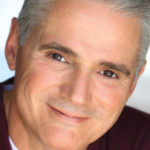 I had just started working in New York when I first heard of Lee. My colleagues would talk about their experiences on the mix stage: “Oh, he’s great. Cleaned up the dialogue…amazing.” I heard this over and over. On the outside, I would respond, “That’s cool.” On the inside, I wondered, “How does he handle music?” About a year later, I found out.
I had just started working in New York when I first heard of Lee. My colleagues would talk about their experiences on the mix stage: “Oh, he’s great. Cleaned up the dialogue…amazing.” I heard this over and over. On the outside, I would respond, “That’s cool.” On the inside, I wondered, “How does he handle music?” About a year later, I found out.
We were mixing Let’s Get Lost, the documentary about Chet Baker. There was a lot of music in the movie — a lot. I had tracks segueing from one to another. I had two tracks playing at the same time. It was complicated. And it was all cut on 16mm, which on a film like that lends itself to some risky edits. How would he handle the music? How would he handle me? I was intimidated. I only had a few feature credits. Lee was mixing big movies for big directors.
When it came time to mix the music, Lee invited me up to the console. In those days, that was off limits. Not with Lee. He was warm, friendly and welcoming. He asked me about the intention of the music. He let me sit with him while he proceeded to mix with grace and finesse. I’ll never forget him sliding over on his chair, elbowing me on the arm and saying, “Watch this.” And I did. I watched him dance the faders up and down, bringing life to the music. I grinned. He grinned. We became friends working on that film.
Thank you, Lee, for all the wonderful mixes and for giving of your talent and humanity. Congratulations on receiving the Fellowship and Service Award.
Joseph S. DeBeasi, MPSE
Friend/Colleague; Music Editor, Composer
 I only had the pleasure of working with Lee briefly on a temp dub when I was a supervising sound editor. But what a pleasure it was. His stellar reputation preceded him. We were working in New York City, away from our home base of LA, and he made us feel completely welcome in his studio at Sound One.
I only had the pleasure of working with Lee briefly on a temp dub when I was a supervising sound editor. But what a pleasure it was. His stellar reputation preceded him. We were working in New York City, away from our home base of LA, and he made us feel completely welcome in his studio at Sound One.
From that time on, as a friend, I have been in many a social setting with Lee as he held court and kept everyone laughing. We’ve shared some wonderful nerdly times (yes, we’re both nerds!) and fabulous meals.
His amazing work speaks for itself. The love his collaborators and friends show for him speaks volumes more. What a career, what a life. Wonderful!
Dody Dorn, ACE
Friend/Colleague; Picture Editor
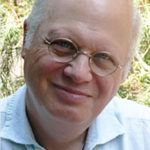 I’m pretty sure I first met Lee Dichter in 1981 at Photo-Mag, when I was just a pishke little assistant music editor, and he was already a big cheese in New York post-production. I remember delivering the music tracks to Lee’s machine room the day before the dub, and peeking into the studio to watch him twiddle with a bunch of little knobs and sliders, seemingly without effect to my untrained ear.
I’m pretty sure I first met Lee Dichter in 1981 at Photo-Mag, when I was just a pishke little assistant music editor, and he was already a big cheese in New York post-production. I remember delivering the music tracks to Lee’s machine room the day before the dub, and peeking into the studio to watch him twiddle with a bunch of little knobs and sliders, seemingly without effect to my untrained ear.
Later, I came to understand why my peers thought that Lee was a genius at the board — particularly with badly recorded dialogue — and why they admired his storyteller’s sense of what was most important in a film mix. He was a good music mixer too, and it was always a happy day when you brought him your composer’s tracks. You knew you were going to have fun, and Lee was going to make your film sing no matter what — even in the face of some cranky director whose film perhaps wasn’t really quite working yet. “It’ll get there,” he’d say, and he’d do his best to make sure it did.
It was largely because of this generous spirit that, in the weeks immediately following 9/11 while my wife and I were displaced from our downtown apartment, we decided to accept refuge in Lee and Sophie’s guest room. It was a tough time for everybody in New York City. Many people in the film community were offering help, but the day Lee and I traipsed back downtown with our wives to see what had become of our home just across the street from the fallen towers, past the wreckage, past the broken glass, past the police barricades — that is something I’ll never forget.
Thank you, Lee, esteemed colleague and treasured friend.
Tom Drescher
Friend/Colleague; Music Editor
 I am fortunate to have known Lee Dichter for 25 years and he’s possibly the reason I’m a mixer today. The first time I worked with Lee was on a temp mix for the film Striptease. There I was, at the console next to the Lee Dichter, thinking, “If I mess this up, I’ll never work in this industry again.” Then, as soon as we started mixing, Lee started to ask for my opinion, listening to my ideas and helping me out during the difficult sections. At the end of three days, I felt that we were actually collaborating.
I am fortunate to have known Lee Dichter for 25 years and he’s possibly the reason I’m a mixer today. The first time I worked with Lee was on a temp mix for the film Striptease. There I was, at the console next to the Lee Dichter, thinking, “If I mess this up, I’ll never work in this industry again.” Then, as soon as we started mixing, Lee started to ask for my opinion, listening to my ideas and helping me out during the difficult sections. At the end of three days, I felt that we were actually collaborating.
That is Lee’s greatest gift: He always made everyone involved in the mix feel welcome and appreciated their contribution. There have been dozens of dialogue and music editors who were as nervous as I was the first time in the studio with the Lee Dichter but, as I have witnessed, Lee would praise their work, listen to everyone’s input and make the mix an inclusive team project.
He is a natural-born teacher. If you were lucky enough to be in a mix room with him, he would explain in real time the intricacies of dialogue mixing in ways no one else could. I’ve never met anyone who experienced such joy in his craft, even while matching ADR lines: “Watch this! I’m going to boost it 6db at 3k. Aha! That’s it!” Then, when he listened to the same line 10 minutes later, “Hmm, I can get it better.”
That energy was infectious. It made me want to listen to every word he was saying. I knew I was witnessing something that would probably never be duplicated.
Thank you, Lee, for those invaluable lessons. Feel free to stop by the studio anytime I’m mixing and please talk all you want.
Roberto Fernández
Friend/Colleague/Mentee;
Re-Recording Mixer
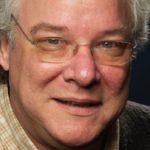 I first met Lee in the early 1980s when I was working at Trans/Audio and he was working at Photo-Mag. We were both young re-recording mixers working in New York and, as soon as we met, I knew he was a kindred spirit. His reputation preceded him, but it wasn’t until we were both working at Sound One that I truly saw what a tremendous talent he was.
I first met Lee in the early 1980s when I was working at Trans/Audio and he was working at Photo-Mag. We were both young re-recording mixers working in New York and, as soon as we met, I knew he was a kindred spirit. His reputation preceded him, but it wasn’t until we were both working at Sound One that I truly saw what a tremendous talent he was.
Lee, I was always in awe of the way you handled the sometimes stressful moments in the mixing room, and your mixing chops are truly admirable. But it was your kind, generous and humorous nature that drew my greatest respect. You always encouraged me and always gave me good advice. One of the biggest regrets I’ve had over the course of my career was that we never got to work together on a film; you were always in one room while I was in another!
Congratulations, Lee, on this very well-deserved award. You have inspired me for decades, and you’ve been a shining example of what a friend, a co-worker and a strong union brother should be. All the best to you.
Tom Fleischman, CAS
Friend/Colleague; Re-Recording Mixer
 Lee Dichter is deservedly known as a top feature film mixer. He is fun to work with and his enthusiasm brings both creative and practical solutions to his work on films of every kind, from documentaries to dramatic features.
Lee Dichter is deservedly known as a top feature film mixer. He is fun to work with and his enthusiasm brings both creative and practical solutions to his work on films of every kind, from documentaries to dramatic features.
I first met Lee Dichter when Sidney Lumet and I arrived to mix The Verdict. Up to that time, Sidney had mixed all his films with Dick Vorisek — a great mixer but a man not noted for his light-hearted approach to life. I had become accustomed to making changes to the tracks to accommodate the manipulations Dick wanted to make in the mixing. Remember, in those long-ago days, audio was on a magnetic stripe on 35mm film, running on machines called dubbers in a back room. I would run into the back, put the tracks in question on an editing bench and physically edit them, then remount the tracks and the mix would proceed.
As our mix on The Verdict began, it became apparent to Sidney and me that Lee was used to doing it all himself on the mixing board with tricks he had developed working with his commercial clients. This was way faster than stopping to edit (which Sidney loved) and often produced good results. But there were some issues not solved easily using Lee’s methods; in his enthusiasm, it was sometimes difficult to persuade Lee (who was keen to keep mixing) to stop and let me edit a solution as a more expedient way forward.
This enthusiasm and skill are infectious and permeate the mixing process with Lee. It is always a pleasure to work with him.
Peter Frank, ACE
Friend/Colleague; Picture Editor
I had the pleasure of working with Lee for 22 years at Sound One. Lee made everyone in the room feel like they were part of the process and valued their opinions — whether it was the mix room with the director, producer, editors and assistants, in the office with the owner, boss and scheduler, or just hanging out at the production desk.
And then there was the time he told me how, back when we recorded on mag and we had to rewind the film, he would continue to mix while it was running in reverse or backwards. Always mixing, always making adjustments. Nobody even knew he was still mixing because all they heard was it playing backwards. Amazing!
Jim Gardner
Friend/Colleague/Mentee;
Director of Business Development, Company 3, New York
 I have been very fortunate to have been able to work with Lee and call him a friend. I first met him at Sound One. I had recently arrived from LA and was setting up Studio G to be used in sound design. My studio was on the third floor, as was Lee’s Studio D. There are very few film mixers who have the ear Lee has. I honestly believe his films should be used as teaching tools for any mixer wanting to learn what great-sounding dialogue should be like.
I have been very fortunate to have been able to work with Lee and call him a friend. I first met him at Sound One. I had recently arrived from LA and was setting up Studio G to be used in sound design. My studio was on the third floor, as was Lee’s Studio D. There are very few film mixers who have the ear Lee has. I honestly believe his films should be used as teaching tools for any mixer wanting to learn what great-sounding dialogue should be like.
Lee is one of those special people who understands the filmmaking process and therefore knows how to help directors make their movie while, at the same time, treating everyone in the mixing studio with respect, regardless of their title.
I am so happy that Lee is getting the recognition that he deserves, because we all know how special it is to work beside him.
Eugene Gearty
Friend/Colleague; Sound Editor
 I was lucky enough to begin my career by working with some of the best filmmakers in New York City. The first feature I worked on was a Mike Nichols film and this is where I met Lee Dichter. I remember walking onto the mix stage at Sound One and being a bit intimidated by the amount of talent in that room. Lee treated me as if he had known me forever. He let me ask questions and encouraged me to sit in during the mix to see the process.
I was lucky enough to begin my career by working with some of the best filmmakers in New York City. The first feature I worked on was a Mike Nichols film and this is where I met Lee Dichter. I remember walking onto the mix stage at Sound One and being a bit intimidated by the amount of talent in that room. Lee treated me as if he had known me forever. He let me ask questions and encouraged me to sit in during the mix to see the process.
I went on to work with Lee on many more films, including the Emmy Award-winning Angels in America. Each film was a gift. To work with him was a privilege — not only for his talent, but for his calming presence. He has become a great friend over the years, and to be around Lee is like being around your favorite uncle. You just want to hug him and sit and talk with him for hours.
Congrats, Lee! I adore and admire you and am so proud to have been “in the mix” of your career!
Ann M. Gray
Friend/Colleague; Producer, Post-Production Supervisor, Actress
 As an LA-based Guild Board member, it gives me great pleasure to see Lee Dichter honored with our Fellowship and Service Award.
As an LA-based Guild Board member, it gives me great pleasure to see Lee Dichter honored with our Fellowship and Service Award.
I met Lee when I was a messenger for a commercial editorial company called, believe it or not, Splice Is Nice. As a messenger, my task was to deliver the mix elements to the mixing studio where a commercial was going to be mixed. On foot, I carried a small, white box containing work picture, production track, music track and a sound effects track to Photo-Mag at 222 East 44th Street, in the shadow of Grand Central Station. There, I was greeted by an assortment of friendly and boisterous relatives (brothers, sisters, aunts, fathers, etc.) of the Dichter family, whose shining star was Lee.
Years later, I returned to Photo-Mag as an assistant editor on Four Friends, a film that Lee mixed because Barry Malkin and Marc Laub took a gamble that paid off well for the New York post-production community. No one is more deserving of this accolade than Lee!
Dorian Harris, ACE
Colleague; Picture Editor
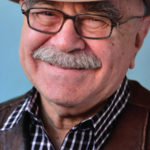 Lee Dichter has been a re-recording giant and a strong union backer his whole career. He was a leader in getting Sound One to sign a contract with our union, and I can’t think of a better recipient of this first Fellowship and Service Award to be given in New York City.
Lee Dichter has been a re-recording giant and a strong union backer his whole career. He was a leader in getting Sound One to sign a contract with our union, and I can’t think of a better recipient of this first Fellowship and Service Award to be given in New York City.
He comes from a family of re-recordists and I was privileged to work with his father when I started as a young music editor in New York. Before I left for Los Angeles, I was lucky enough to mix Star 80 with Lee. So, in a way, my career was studded with Dichters, and I couldn’t be more thankful.
Alan Heim, ACE
Friend/Colleague; Picture Editor;
President, Motion Picture Editors Guild; Vice President, American Cinema Editors
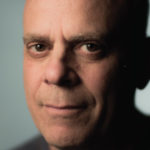 To know Lee Dichter is to learn generosity, patience, artistry, dedication, humility and love for one’s craft.
To know Lee Dichter is to learn generosity, patience, artistry, dedication, humility and love for one’s craft.
Just out of college, I rushed into a lead sound supervising job, mixing two days every week with Lee. I was seriously over my head, but what might have been intimidating turned into a personal master class. Playing the console like some super-charged electronic steel guitar, he taught me everything he could because he loves what he does and genuinely wanted me to do well — and he hadn’t even known me for five minutes! We’ve mixed many features together since, and what was true then has remained true.
He’s an absolute pleasure to collaborate with. He will not stop until he achieves perfection on a scene, and he explains everything he’s doing as he goes, bringing everyone along for the symphony. One time he jumped up onto the producer’s desk and danced! Everyone who comes into his sphere is welcomed and nurtured. It is no mystery why Lee is one of the most beloved members of our New York film community.
When Lee mixes, he doesn’t scrutinize a word; he gets into every syllable. Treating a dialogue scene like an action scene, he builds it until it peaks. And when it comes to music, that’s where his soul is. He finds the score for the film in his touch, mixing in subtle ways that you can’t put your finger on. Ask Lee to take a break, and he’s gone for the amount of time it takes to get up, take a half step, sit down again and continue orchestrating.
But besides all that, as a friend Lee is pure gold. He listens, shares and contributes to your life like no one else. Lee, we all love you and treasure you.
Robert Hein
Friend/Colleague/Mentee; Sound Editor
 To me, Lee Dichter has been both mentor and inspiration. I also count him as a friend. It’s rare to find a person as good and respected as Lee is at his craft, yet so humble and caring for those with whom he works. Most pictures you see of him are of the serious and professional Lee. But those of us who have worked with him through the years also know a Lee who can exhibit both a child’s enthusiasm and a mischievous streak. Let me give a few examples.
To me, Lee Dichter has been both mentor and inspiration. I also count him as a friend. It’s rare to find a person as good and respected as Lee is at his craft, yet so humble and caring for those with whom he works. Most pictures you see of him are of the serious and professional Lee. But those of us who have worked with him through the years also know a Lee who can exhibit both a child’s enthusiasm and a mischievous streak. Let me give a few examples.
Lee as a man of enthusiasm: As a Dolby consultant, I was able to drift in and out of mixes over the weeks they take to complete, and was often called upon to listen with fresh ears to lines of difficult dialogue. One day, Lee stopped a final mix to have me listen to a certain passage. I pronounced it “absolutely natural.” Lee erupted with glee and explained that he had spliced the dialogue in the frequency domain using the lifeless ADR reading for the high frequencies for intelligibility and the production for the low-frequency guttural voice that gave the performance a punch; an amazing feat. We played it again and now, knowing the technical backstory, I was amazed how natural it sounded. This was in the 35mm mag days before digital time-alignment via computer.
Lee as prankster: I witnessed many of Lee’s high jinks directed at colleagues, but one of his most successful poked fun at me. Lee, who knows how important loyalty is to me, lifted my name off my business card, pasted it on a competitor’s card, made copies and spread them throughout the studios.
Congratulations, Lee, on getting my goat! And congratulations on the great honor bestowed on you today.
Brad Hohle
Friend/Colleague; Senior Director, World Wide Cinema Support, Dolby Laboratories
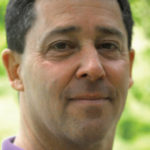 Lee is more than a mixer with a good ear. He’s a diplomat, a negotiator, the voice of reason and harmony in a cacophonous argument, and master of the creative audio solution. I was supervising ADR editor on more films than I can count with Lee as mixer.
Lee is more than a mixer with a good ear. He’s a diplomat, a negotiator, the voice of reason and harmony in a cacophonous argument, and master of the creative audio solution. I was supervising ADR editor on more films than I can count with Lee as mixer.
On Postcards from the Edge, I had a very strong desire to create vocal audio chaos just before a visual sight gag. Everyone in the room objected. The editor, the supervising sound editor and even Lee chimed in supporting their argument against my tracks, saying that it would hurt the joke. I disagreed and asked that we just play it for the director and let him decide. Before we played it for the director, Lee mixed it, placing the extra voices on the right and left to give them a real dimension. The end result: It made the director laugh. My goal was achieved, and Lee made it happen.
On Far and Away, Lee took painstaking effort to help place and balance the building breaths and footsteps of a running actor before a big explosion. It was a work of art, but the film editor said he didn’t want to hear the breaths after Lee had spent hours making the track sound great. In my personal opinion, being close on the face of the actor, seeing him huffing and puffing and then only hearing his footsteps, hurt the cinematic moment. With a philosophic shrug, Lee let go of the baby he had been nurturing. I argued with the film editor to no avail, but Lee’s humble, easy c’est la vie nature made the whole experience acceptable, teachable and memorable. There is absolutely nothing negative that can be said about this giant of a gentle man.
Michael Jacobi
Friend/Colleague; ADR Editor
 Lee Dichter may be the sole reason I was able to get my start in the film sound business.
Lee Dichter may be the sole reason I was able to get my start in the film sound business.
My father was a colorist and knew Lee in the ’80s. When I was a kid, I started to work in recording studios, but realized I wanted a career that had a little bit more stability to it than the music business. My father told me about this guy he knew named Lee, and how he came from a family-operated post-mixing house called Photo-Mag and was now at a facility called Sound One. I was able to get a messenger position there and, months later, was promoted to the ADR machine room, which was right across the hallway from Lee’s studio in the Brill Building.
Up until this point, I had never really met Lee or had a chance to introduce myself because he was mixing all the time — I mean all the time. One day in the hallway, I finally got a chance to talk to him and I was star-struck. This was the legendary Lee Dichter, the Oz behind the always-closed doors of Studio L.
After years of working my way up to ADR mixer, I would come to respect Lee as the king of dialogue; he could make unusable noisy tracks sound amazing. I often reflect back on people I met in my life and realize how much Lee was a key part in more than just introducing me to my profession. Sound One is where I grew up, met my wife, had a family and started my career. Thank you, my friend.
Bobby Johanson, CAS
Friend/Colleague; ADR Mixer
 In so many instances a film can be a symphony of nightmares to work through: deadlines, personalities and egos. But when the film progressed to the dub stage, and Lee Dichter was sitting there behind the giant console he called his toy, I always knew the nightmares were over and the final fix was in the works.
In so many instances a film can be a symphony of nightmares to work through: deadlines, personalities and egos. But when the film progressed to the dub stage, and Lee Dichter was sitting there behind the giant console he called his toy, I always knew the nightmares were over and the final fix was in the works.
Lee was the maestro, the gentleman, the friend who would always officiate the marriage of all the sounds, bringing them together with his master stroke. He was always welcoming — a listener — and transparent with his work. He would respect his crew in the machine room, always having their backs. That show of respect would spread to everyone on the stage. It brought out the best in people. Golden hands would coerce a note or a syllable…drastic EQ changes on the fly (practicing in reverse while rewinding)…continual motion of the faders — and Lee’s constant banter of what he was doing on the board (or his golf game), all the while punching into “record”…seamlessly. I’ve been honored to work with Lee and very honored to call him my friend.
Todd Kasow
Friend/Colleague; Music Editor
 Mazel tov, Lee! I will always associate Sound One with Lee Dichter’s genius and endearing smile. Mixing with him was sheer pleasure, as he brought unlimited expertise and poetry to the monitor while mixing my first two documentaries on Jewish heroes: Partisans of Vilna and The Life and Times of Hank Greenberg. Working on Partisans allowed Lee to explore his own family roots in Yiddish-speaking cinema, while Hank Greenberg afforded him the opportunity to hear beloved baseball sounds emanating from his studio instead of the stadium.
Mazel tov, Lee! I will always associate Sound One with Lee Dichter’s genius and endearing smile. Mixing with him was sheer pleasure, as he brought unlimited expertise and poetry to the monitor while mixing my first two documentaries on Jewish heroes: Partisans of Vilna and The Life and Times of Hank Greenberg. Working on Partisans allowed Lee to explore his own family roots in Yiddish-speaking cinema, while Hank Greenberg afforded him the opportunity to hear beloved baseball sounds emanating from his studio instead of the stadium.
I treasure our friendship throughout the years and pride myself on having fixed up our honoree Lee Dichter with his beloved Sophie. Lee, you are the mensch we are so grateful to have in our film and personal lives.
Aviva Kempner
Friend/Colleague; Documentary Filmmaker
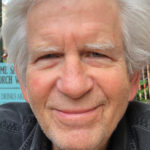 For a newly minted sound editor walking into an unknown mix room, intimidation is par for the course. Lee’s studio was the exception. His relaxed, friendly manner did not make you feel like a pair of hands correcting sync on a backroom bench, but more like his rookie partner — inexperienced, perhaps, but maybe with valuable ideas. This emotional openness and his sense of humor made Lee’s studio a place where you wanted to work, and reflected a deep connection to the dramatic content up there on the screen. Over the years, covering my reels at the mix, and then supervising, he taught me what dialogue should sound like, and how a mixer could bend and enhance performance, not just clean the track.
For a newly minted sound editor walking into an unknown mix room, intimidation is par for the course. Lee’s studio was the exception. His relaxed, friendly manner did not make you feel like a pair of hands correcting sync on a backroom bench, but more like his rookie partner — inexperienced, perhaps, but maybe with valuable ideas. This emotional openness and his sense of humor made Lee’s studio a place where you wanted to work, and reflected a deep connection to the dramatic content up there on the screen. Over the years, covering my reels at the mix, and then supervising, he taught me what dialogue should sound like, and how a mixer could bend and enhance performance, not just clean the track.
How do you explain the direct neural connection between his ears and EQ knobs? However he does it, tweaked by that emotional bond, he changes what he’s hearing out of the speakers into what he’s hearing in his head. Visiting actors and location recordists quickly saw that their work was in good hands.
I wish I could have better emulated his grace and patience in an industry often lacking in both. He treated everyone with the same kindness; directors to interns, receptionists to studio executives, all got the same Lee. Under insane deadlines, with little sleep, fielding constantly changing picture cuts, surrounded by arguing filmmakers, he kept the mix on an even keel — without raising his voice.
We respect him for what he could do with a track; we love him for how he treated those around him.
Michael Kirchberger
Friend/Colleague/Mentee; Sound Editor
 I have often been a recordist on films I have directed and, in my early career, did sound on others’ films. On the movies I shoot today, I always wear a Comtek in the field. Sound is such a crucial part of any good film. Lee is a true master. If he hears the crack of a golf ball being hit, without looking he can tell what club was used to hit it. That’s how attuned he is to sound.
I have often been a recordist on films I have directed and, in my early career, did sound on others’ films. On the movies I shoot today, I always wear a Comtek in the field. Sound is such a crucial part of any good film. Lee is a true master. If he hears the crack of a golf ball being hit, without looking he can tell what club was used to hit it. That’s how attuned he is to sound.
My first film as director and producer, Harlan County USA, was incredibly difficult to make. I went into debt and knew I would have to do everything in my power to get it finished. During post, I met with the great Lee Dichter to persuade him to work with me. I thought I would never convince him to mix my movie because he was already the top mixer with whom everyone dreamed of working.
But Lee has been a devoted lifelong union member and advocate. When he saw Harlan was about coal miners fighting for their right to be part of the union, and how women took over the picket lines — and that it was a documentary infused with music — not only did he work on it, he did it for next to nothing. He believed in what the film was about.
Lee is so much fun to work with. During our sessions, we found ourselves talking about anything and everything, laughing and enjoying working together. I felt like the luckiest girl imaginable whenever I got to work with Lee again on a number of films, like American Dream and Wild Man Blues. I’ve seen him perform miracles on films.
I’m proud and honored to have worked with Lee and hope to do so in the future (hint, hint).
Barbara Kopple
Friend/Colleague;
Recordist, Director, Producer
 I first met Lee in the summer of 1984 when I was a young tech at Sound One. I hardly knew anyone and was eager to learn as much as I could. It was quite obvious to me that Lee was special and I made it a point to learn his secrets. Quite often, I started hanging in the mix studios to fathom the ins and outs. I wanted to know everything about the workflow and the technology that make it happen.
I first met Lee in the summer of 1984 when I was a young tech at Sound One. I hardly knew anyone and was eager to learn as much as I could. It was quite obvious to me that Lee was special and I made it a point to learn his secrets. Quite often, I started hanging in the mix studios to fathom the ins and outs. I wanted to know everything about the workflow and the technology that make it happen.
But then I realized I should pay more attention to something else. I saw Lee performing magic every day. He was (and still is, amazingly, so many years later) masterful when it comes to mixing sound for movies — but that wasn’t what got my attention. After all, I was very new to the industry and couldn’t tell much difference between bad, good or great sound.
What I experienced was how amazing Lee is with people. He is most gracious, respectful, sensitive and super-professional to every person around him at all times. He made every person in the room feel comfortable, even when ideas were in conflict.
Lee, my mentor, thank you for a long and precious friendship.
Avi Laniado
Friend/Colleague/Mentee;
Chief Engineer, Harbor Picture Company
 In 1978, Evan Lottman asked me to be the supervising sound editor of Jerry Schatzberg’s film The Seduction of Joe Tynan. Jerry wanted to mix with someone other than Richard Vorisek. I knew of Lee; he was an accomplished documentary mixer at Photo-Mag. Lee and his brother mixed there in side-by-side studios, his sister Beverly booked the clients and Sybil Brown was at the front desk, while his dad Murray kept everyone on their toes.
In 1978, Evan Lottman asked me to be the supervising sound editor of Jerry Schatzberg’s film The Seduction of Joe Tynan. Jerry wanted to mix with someone other than Richard Vorisek. I knew of Lee; he was an accomplished documentary mixer at Photo-Mag. Lee and his brother mixed there in side-by-side studios, his sister Beverly booked the clients and Sybil Brown was at the front desk, while his dad Murray kept everyone on their toes.
Photo-Mag was basically a commercial mix house. Mixing dramatic features was what Lee aspired to do. What I did not know at the time was how much fun mixing could be. Lee made the experience a joy. He slid his tracks around from the console, and would take affront at the suggestion to stop mixing and edit a track off the dubbers. We referred to Lee’s console as “the great Moviola in the sky.” He listened to your tracks with the anticipation of someone who was about to eat something really tasty. To Lee, sound effects were a treat and he eagerly awaited them, as one would look forward to dessert at the end of a meal.
No matter what artistic political battle was swirling about, Lee mixed as if all was well. He never expressed frustration or annoyance; on rare occasions you would catch a sideways look or an eye roll. The hours of the day flew by as we all had a good time. My peers and I ended up mixing many, many films with Lee. We all admired his talent and his ability to create in chaos. We are forever grateful for his enthusiasm, good humor and kindness.
Congratulations to Lee Dichter on a very well-deserved honor.
Marc Laub
Friend/Colleague; Picture and Sound Editor
 The day I realized Lee Dichter was a star was the day Nora Ephron explained to me that in Lee’s mixes, the dialogue was always the best it could ever be. Nora was an exacting judge of talent. When she sang someone’s praises, I knew to pay attention. When I started editing features for Woody Allen, I heard the same thing from him. Woody would only work with Lee, because…dialogue, Dialogue, DIALOGUE! For him, the word is the thing. I was so grateful that Lee was Woody’s mixer when I came on board.
The day I realized Lee Dichter was a star was the day Nora Ephron explained to me that in Lee’s mixes, the dialogue was always the best it could ever be. Nora was an exacting judge of talent. When she sang someone’s praises, I knew to pay attention. When I started editing features for Woody Allen, I heard the same thing from him. Woody would only work with Lee, because…dialogue, Dialogue, DIALOGUE! For him, the word is the thing. I was so grateful that Lee was Woody’s mixer when I came on board.
Over the past two decades, Lee and I worked together on a film a year. We developed our own rhythms, rituals and practically our own language. We dealt with many challenges (no ADR — ever!) and had a great time while doing it. Everytime I locked picture, I looked forward to another mix with Lee. Watching him dive into a reel was an opportunity to see a master of his craft demonstrate the essence of flow. He is the best at what he does, and he loves it.
Lee, you are so much more than a colleague. You are an inspiration, and a friend.
Alisa Lepselter, ACE
Friend/Colleague; Picture Editor
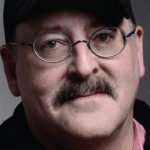 I first met Lee when I was sent to New York City from Los Angeles to work on a feature film for TriStar. I was out of my element in a city where I did not know anyone in the film industry. Lee Dichter was one of several people who made me feel right at home. I remember when I first watched him work, “the grand wizard of sound mixing” was remarkable.
I first met Lee when I was sent to New York City from Los Angeles to work on a feature film for TriStar. I was out of my element in a city where I did not know anyone in the film industry. Lee Dichter was one of several people who made me feel right at home. I remember when I first watched him work, “the grand wizard of sound mixing” was remarkable.
I ended up working with Lee on several more films as the post-production supervisor. Then came my chance to work with him as a director. I was elated when he agreed to mix my short. I felt so lucky that he had given me his time. The mix was absolutely brilliant, and it was only after we finished that he said he wished he had a few more days to make the mix better. I wondered, “How could it be any better?”
Lee is a man who loves his work and shows it every time.
Paul Levin
Colleague; Post-Production Supervisor, Producer, Director
 I worked with Lee on a bunch of films over a 20-year period. From the beginning, I was always struck by the ratio of his talent to his ego; most film people with Lee’s degree of artistry and depth of resumé lose touch with reality. Lee never did. He’s a brilliant dialogue mixer with golden ears, but also a generous, funny person who can read a room and set everyone at ease.
I worked with Lee on a bunch of films over a 20-year period. From the beginning, I was always struck by the ratio of his talent to his ego; most film people with Lee’s degree of artistry and depth of resumé lose touch with reality. Lee never did. He’s a brilliant dialogue mixer with golden ears, but also a generous, funny person who can read a room and set everyone at ease.
I’ve been lucky to count Lee as a friend and fellow nerd since the 1990s, and you should know that, as such, I’ve seen him wield not only an IEC-compliant SPL Meter, but also a kayak paddle to great effect. Do not challenge his kayaking skills.
Lee is also an old-school New York original, as New York as an egg cream in the Empire State Building with “pizza rat.” I love the guy. I just wish he could get some fresh jokes, because I’ve heard all his corny material a million times.
Blake Leyh
Friend/Colleague; Sound Effects Editor, Music Supervisor, Composer
My first film mix with Lee was Robert Altman’s O.C. and Stiggs in 1985 — very wild Altman with a fun and wild soundtrack, and edited by Elizabeth Kling, my wife. By this time, Lee had already mixed the following outstanding films: Four Friends, The Verdict, Sophie’s Choice and The Cotton Club, along with about 50 documentaries and 50 other great and near-great films.
I am forever grateful for our fantastic collaborations with Lee on the Coen brothers’ films. In 1989, Miller’s Crossing was our first film, and the first edited in our new facility, c5. We were all very excited. Carter Burwell’s score was fabulous! Barton Fink (1991) was the next Coen/Dichter project, and maybe my favorite film, certainly my favorite soundtrack. We had such great material to work with, and Lee cheerfully exceeded our expectations — daily.
In 1995, we had many laughs working for Barry Sonnenfeld on Get Shorty, followed by more laughs on Men in Black. We had many other fun mixes together, including Sleepy Hollow and Shaft.
Since then, Lee has mixed another 100-some films and documentaries, and now we are all a bit older and very much wiser for the times we had with our own New York mixing genius!
Skip Lievsay, CAS
Friend, Colleague; Re-Recording Mixer, Sound Editor
At a recent re-recording talk with Tom Fleischman, Lee Dichter screened the tunnel scene from Men in Black. In pursuit of a rogue alien bug (Vincent D’Onofrio), Agents J (Will Smith) and K (Tommy Lee Jones) drive through the Queens Midtown Tunnel. The scene begins mysteriously, then quickly becomes a wild ride as K’s Ford fires up its rocket boosters and drives on the tunnel’s ceiling. J panics while K sings along to Elvis. Sound design, music and dialogue are featured in turn, with a dash of Foley and ADR added in, creating a scene that is just so much fun! It’s a perfect example of Lee’s work: a master conductor at play. There’s no need for K’s advice to J that he needs to “learn to take some joy in your work.” This is just what Lee always does. Thank you, Lee, for sharing the joy.
I am delighted to join in celebrating Lee Dichter. I raise my glass to you.
Marissa Littlefield
Colleague; ADR Editor
 Lee is considered by many the dean of motion picture sound re-recording mixers. He has some 300 film credits to his illustrious career. He has been nicknamed “The Ears” and the “Go-to Mixer” for award-winning directors and documentarians — Francis Ford Coppola, Sidney Lumet, Woody Allen, Mike Nichols, Nora Ephron, the Coen brothers, Ken Burns and an endless list of other A-list directors. “The Ears” was the re-recording mixer on numerous Academy Award- and Golden Globe-winning and -nominated films: Sophie’s Choice, Hannah and Her Sisters, Sleepless in Seattle, The Verdict, Doubt and Angels in America, to name a few.
Lee is considered by many the dean of motion picture sound re-recording mixers. He has some 300 film credits to his illustrious career. He has been nicknamed “The Ears” and the “Go-to Mixer” for award-winning directors and documentarians — Francis Ford Coppola, Sidney Lumet, Woody Allen, Mike Nichols, Nora Ephron, the Coen brothers, Ken Burns and an endless list of other A-list directors. “The Ears” was the re-recording mixer on numerous Academy Award- and Golden Globe-winning and -nominated films: Sophie’s Choice, Hannah and Her Sisters, Sleepless in Seattle, The Verdict, Doubt and Angels in America, to name a few.
I am honored and blessed to have known the very young Lee, the one before he became the world-renowned re-recording mixer you are honoring today. Lee was a sound recordist for me, as was his older brother Mark. I immediately saw Lee’s talent, his attention to detail and his amazingly approachable humanness, which produced in all who worked with him the desire to have Lee as a friend.
There wasn’t a moment’s hesitation in having Lee do his very first re-recording mix, and having it done for me. That film, De Düva (The Dove), went on to become one of the most honored and beloved American short films of all time and represented the United States in film festivals around the world, winning 28 awards. Lee’s talents have graced every award-winning commercial, television and feature film and network branding I’ve ever created. Like so many others, I cannot consider a production complete without “The Ears” supporting and making us look and sound great.
I love you, my old, and most talented, friend.
Anthony Lover
Friend/Colleague/Mentor; Director, Writer, Producer
 We can’t get Dick Vorisek. He’s booked solid,” the producer notified us.
We can’t get Dick Vorisek. He’s booked solid,” the producer notified us.
“Oh, no,” I shrieked, shattered by the news.
No mixer in New York compared with Vorisek. But a colleague began singing the praises of Lee Dichter and suggested we consider him. Shortly after, we did a scratch mix with Lee at Photo-Mag and I was quickly won over.
Months later, after we’d spent the day interlocking Four Friends, the director gave us his notes and sheepishly asked, “So what do you want me to do now?”
I advised that Lee would begin mixing reel one in the morning and that he could join us then or, if he preferred, we could call him when we were nearing playback.
“You mean I don’t have to be here round-the-clock?” director Arthur Penn inquired. “No,” I replied.
“Dede made me stay at the mix all the time,” Arthur let on. “She never allowed me to leave.” “Well, that’s up to you,” I said. “Great. I hate being at the mix. It’s worse than root canal,” Arthur declared.
We mixed on with Lee. It was painless and laughter filled the room. But Lee’s extraordinary talents were paramount: facility and technique — and casting himself as crewmember rather than authority. Notably, Lee earned generous kudos from Arthur. As for me, I had established a new friendship.
Eventually, Lee confided that he wanted to put professional distance between himself and the family business (his dad was a Photo-Mag partner). I soon expressed my enthusiasm for Lee to the honchos at Trans/Audio and Sound One. Meanwhile, Lee’s reputation began to flourish. And then Elisha Birnbaum made Lee an offer he couldn’t refuse: a brand new studio built to his specifications at Sound One. And in a jiff, the dude was booked solid.
Barry Malkin
Friend/Colleague; Picture Editor
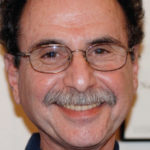 Although I had met Lee Dichter and knew his reputation, I didn’t have an opportunity to work with him until after I had moved from New York to Los Angeles. In 1998, having returned to New York to edit a Nora Ephron film, I worked with Lee on what was to be the first of three feature film collaborations.
Although I had met Lee Dichter and knew his reputation, I didn’t have an opportunity to work with him until after I had moved from New York to Los Angeles. In 1998, having returned to New York to edit a Nora Ephron film, I worked with Lee on what was to be the first of three feature film collaborations.
Working with Lee is an astonishing experience. He runs his mixing room like a conductor leads an orchestra. Although he is legendary for his expertise in dialogue mixing, he is equally accomplished in both music and effects mixing. He personifies everything you could wish for in a re-recording mixer: intelligence, knowledge, humor, technical skill, an indispensable sense of story and that last magic ingredient — endless, endless patience. I don’t know how he does it, but in the chaotic end of post-production, he brings an attitude of composure and calm to an atmosphere not usually known for either. That’s no easy feat when time, patience, money and tempers are running short. He is one of the few re-recording mixers directors specifically request and for whom they are willing to adjust their post schedules.
Lee’s film and television credits are numerous and impressive. They cover many genres, from the documentaries of the Maysles brothers to Get Shorty; from Ken Burns’ documentary series The Civil War to Blue Jasmine and You’ve Got Mail; from Barton Fink to the television miniseries Angels in America.
Congratulations, Lee, you deserve this recognition and award.
Richard Marks, ACE
Friend/Colleague; Picture Editor
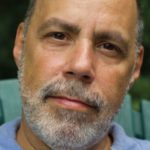 I have had the good fortune to work on 20-plus movies mixed by Lee Dichter, a name synonymous with New York post-production for the last 50 years. Anyone who has heard his mixes can attest to their artistry. While Lee’s contribution to the medium will be long remembered, it’s the impression he leaves behind as a charismatic and generous individual that is most significant to me. Those of us lucky enough to have worked with him can tell you about the radiant warmth and sense of fun with which he filled his stages at Sound One. They were not just places of work, but his home in which we were invited to participate on his creative journeys. No matter how tight the schedule or how combustible the personalities involved, his affability defused even the most intense situations with laughter and good cheer.
I have had the good fortune to work on 20-plus movies mixed by Lee Dichter, a name synonymous with New York post-production for the last 50 years. Anyone who has heard his mixes can attest to their artistry. While Lee’s contribution to the medium will be long remembered, it’s the impression he leaves behind as a charismatic and generous individual that is most significant to me. Those of us lucky enough to have worked with him can tell you about the radiant warmth and sense of fun with which he filled his stages at Sound One. They were not just places of work, but his home in which we were invited to participate on his creative journeys. No matter how tight the schedule or how combustible the personalities involved, his affability defused even the most intense situations with laughter and good cheer.
As a dialogue editor, I was able to witness his work firsthand. Whether it was adjusting the volume or equalization of a syllable on the fly, instructing me to shift the word placement on a voiceover in order to make room for a music cue or to simply let a moment of drama breathe, his ease with the process always impressed me.
Like an uncle revealing magic tricks, he would sometimes smile knowingly at me as he proudly annotated his deft actions. He always made tough deadlines with grace, keeping the mood buoyant regardless of stressful schedules. He always kept the bigger picture at the forefront of his mind, his singular attention to detail never devolving into detours in the weeds — a perfectionist without the myopia that is often its partner.
I congratulate Lee for this well-deserved honor and thank him for his years of inspiration and support.
Tony Martinez
Colleague; Dialogue/ADR Editor
What can I say about Lee Dichter? I’ve worked with Lee as a dialogue editor on more than 20 Woody Allen films. Along the way, we’ve managed to squeeze in a few other gems. I can honestly say that the reason they were all wonderful experiences is the common denominator of Lee. He mixes, but in that process he teaches, he listens and he cares.
His passion for mixing is unparalleled. He can spend hours working on a line of dialogue, or a phrase of music, until it’s just where he thinks it should be. And of course, he’s usually right.
His passion for life is just as powerful. As anyone who has ever been in a mixing studio knows, there is often a lot of downtime spent in a dark room sharing stories. What I learned about life in those moments, I cherish more than anything!
I love you, Lee, with all my heart, and it’s been my great privilege to work with you these many years!
Sylvia Menno
Friend/Colleague; Sound Editor
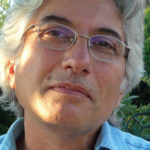 I met Lee Dichter in the mid–‘70s while he was working at his father Murray’s post-sound studio, Photo-Mag. I was introduced to Lee by his brother Mark, who was my sponsor into the New York film union.
I met Lee Dichter in the mid–‘70s while he was working at his father Murray’s post-sound studio, Photo-Mag. I was introduced to Lee by his brother Mark, who was my sponsor into the New York film union.
As a production sound mixer, I admired those mysterious men and women in dark, quiet rooms who manipulated my raw material by marrying music, sound effects and magic into a finished product. It wasn’t until I visited Lee on the mixing stage that I discovered his gift for blending a storytelling sensibility with a passion to make it sound just right. On one particular visit, I recall watching him mix a film on which he noticed the fall-off in volume of a seated actor who unexpectedly turned his head, eluding any chance for the boom mic to follow. Without any fanfare, Lee rolled back the dozens of 35mm Magna-Tech film recorders and, punching “record,” added a subtle boost of level and EQ to make a seamless improvement in the final product.
This took place at a time when he was the sole mixer at the console, responsible for all the tracks delivered by editorial. If you allow for the hundreds of similar or more dramatic refinements Lee has implemented on each film, you only begin to appreciate how fine a creative artist — in technician’s clothing — he is.
Over the course of the four decades I have known Lee, he has mixed at least 10 of my films. Significantly, his influence goes well beyond the hundreds of production mixers he’s served so masterfully, as noted by an equally impressive list of devoted directors and producers.
Danny Michael, CAS
Colleague; Production Sound Mixer
 It seems that I have always known Lee Dichter, although I didn’t meet him until 1986 at Sound One while he was mixing Hannah and Her Sisters. We went to lunch to get acquainted and he was so kind and gracious. I instantly felt that we were old friends because of his warmth and class. I was so impressed.
It seems that I have always known Lee Dichter, although I didn’t meet him until 1986 at Sound One while he was mixing Hannah and Her Sisters. We went to lunch to get acquainted and he was so kind and gracious. I instantly felt that we were old friends because of his warmth and class. I was so impressed.
I asked him how the mix was going on Hannah. It was his first day on the mix, and he said that he had final-mixed three reels that morning as the lone mixer. He characterized Woody Allen’s film mixes, at least back then, as a “couple tracks of dialogue, couple tracks of music, couple tracks of effects.”
Lee is the master of making great film mixes out of little to work with. He is clever and passionate, and always contributes so much to every film, earning the reputation as New York’s most respected film mixer.
I see Lee only occasionally because we’re on opposite coasts but, throughout the years, he has always felt like a close friend and professional brother. He will always be the standard of New York sound professionals that all should inspire to be.
Michael Minkler, CAS
Friend/Colleague; Re-Recording Mixer
 I have known Lee Dichter for only 40 years, and I’ve had the experience of spending a month in a mix with him on only 14 films. So that’s more than a year of my life in a dark room with the Vladimir Horowitz of film mixers. They have been some of the best times of my professional life.
I have known Lee Dichter for only 40 years, and I’ve had the experience of spending a month in a mix with him on only 14 films. So that’s more than a year of my life in a dark room with the Vladimir Horowitz of film mixers. They have been some of the best times of my professional life.
Lee is the rarest of rare people: a man of incredible integrity, intelligence, humor, intense compassion and a talent that is unsurpassed. He brings those talents and qualities to his job every single day and adds to the cinematic stories we tell a dimension that is both under-appreciated and massive in its importance.
While those of us below the line are mostly unknown to the millions of filmgoers who watch our tales, we all know how incredibly lucky we are to have Lee as a cohort and a leader in the post community. I am so honored to call him a friend.
Andy Mondshein, ACE
Friend/Colleague; Picture Editor
 When I first met Lee, I was impressed by the way his fingers stroked the column of toggle switches on the Photo-Mag mixing board, creating a sinuous image of the desired EQ as the picture spooled backwards. In those days, most mixers sat back and smoked a cigarette while the film rewound. Not Lee. He heard the EQ better, he said, when he wasn’t distracted by listening to what the actors were saying.
When I first met Lee, I was impressed by the way his fingers stroked the column of toggle switches on the Photo-Mag mixing board, creating a sinuous image of the desired EQ as the picture spooled backwards. In those days, most mixers sat back and smoked a cigarette while the film rewound. Not Lee. He heard the EQ better, he said, when he wasn’t distracted by listening to what the actors were saying.
That was 1981, when I was mixing an early cut of Woody Allen’s Zelig. We didn’t release the film for another two years, but this gave us a chance to pick Lee’s brain. Most people who see Zelig are enthralled by Gordon Willis’ cinematography being indistinguishable from the interwoven archival footage. Far less attention is paid to the sound. We’d recorded on period microphones, but we also used Lee’s knowledge of the history of his craft. He described and we mimicked the technical limitations of 50 years prior. No problem, said Lee.
Lee is renowned for making every syllable of the dialogue crystal clear, which is vital for Woody, who refuses to use ADR. Gunshot obliterating a word? No problem. But it didn’t stop there. Lee also helped us turn MOS scenes shot on the soundstage into an eerie evocation of a 1920s Eastern European city for Shadows and Fog, create an homage to Orson Welles’ War of the Worlds for Radio Days, and turn another MOS scene in that film into a heart-wrenching depiction of efforts to save a little girl who had fallen down a well.
But personally, my favorite memory was 30 years ago, when I made the then-unheard-of request to breastfeed my newborn son in the isolation booth while listening to the mix over headphones. No problem, said Lee.
Susan E. (Sandy) Morse, ACE
Friend/Colleague/Mentee; Picture Editor
 Lee Dichter’s astonishing, yards-long list of credits, spanning more than 50 years, speaks for itself — particularly when you realize how many directors and producers kept returning to work with him: Woody Allen, Martin Scorsese, the Maysles brothers, Alan Pakula, Bob Fosse, Frank Oz, Francis Coppola, the Coen brothers, Mike Nichols, Robert Altman, Nora Ephron, M. Night Shyamalan, Lasse Hallström, Robert De Niro, Wes Anderson, Stephen Daldry, Woody Allen, Woody Allen and…Woody Allen!
Lee Dichter’s astonishing, yards-long list of credits, spanning more than 50 years, speaks for itself — particularly when you realize how many directors and producers kept returning to work with him: Woody Allen, Martin Scorsese, the Maysles brothers, Alan Pakula, Bob Fosse, Frank Oz, Francis Coppola, the Coen brothers, Mike Nichols, Robert Altman, Nora Ephron, M. Night Shyamalan, Lasse Hallström, Robert De Niro, Wes Anderson, Stephen Daldry, Woody Allen, Woody Allen and…Woody Allen!
I regret that I have never worked with Lee, though I would love to, but I know from the several occasions I have met him, and from talking to people who have worked with him, that he fully embodies the hard-won wisdom that the re-recording mixer is the midwife at the final stages of a film’s birth. When all is going smoothly, and there are no complications, the mixer oversees (or rather overhears) the re-recording with the necessary vigilance, sensitivity and efficiency. But if there are problems — and sometimes those can even be unresolved, lingering problems with the film’s script — the mixer has to intervene quickly, carefully and diplomatically, helping to solve, with deft fingers, the equivalent of a breech birth, an umbilical cord around the neck or even a caesarian section!
Understanding this, and the knowledge of human relations it requires, is Lee’s great personal and diplomatic skill, alongside the superb technical and artistic quality of the work itself.
Walter Murch, ACE, CAS, MPSE
Friend/Colleague; Sound Designer, Sound Editor, Re-Recording Mixer, Picture Editor
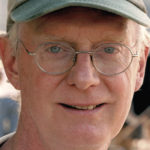 When Lee and I were both pups, I had the pleasure and blessing to work on Distance, a first feature-length film directed by Anthony Lover. Tony decided to shoot the entire film in masters with actors overlapping, camera perspective always changing, and almost no cuts within a scene. After recording the film on location, and working on the sound editing, I had the honor to sit throughout the mix with Lee Dichter.
When Lee and I were both pups, I had the pleasure and blessing to work on Distance, a first feature-length film directed by Anthony Lover. Tony decided to shoot the entire film in masters with actors overlapping, camera perspective always changing, and almost no cuts within a scene. After recording the film on location, and working on the sound editing, I had the honor to sit throughout the mix with Lee Dichter.
That time spent with Lee shaped my entire film career. I learned what was probably the most important lesson for a sound person when Lee said, “You don’t have to hear all sounds; many you just feel.” (I was wondering where the cricket track was in a night scene.) Many days during the mix, Tony and I would come in as scheduled, but Lee had come in early, saying, “I had an idea last night and wanted to try something,” as he played a change that he had made. And, invariably, Lee was right on target.
Throughout these 45 years since, Lee has re-mixed more than a dozen films that I recorded. And when I see the final release, I have invariably wondered, “How did Lee do that?” What I knew was a difficult scene as we shot it ended up sounding perfect, and the entire soundtrack was flawless. So often, the production mixer doesn’t get to actually follow the sound in a film to the end, but I wish everyone had the experience I had watching Lee at work. He is a master at listening with a sensitivity to produce soundtracks that fulfill the highest expectations of all who worked on the project. Thanks, Lee.
Tom Nelson, CAS
Colleague; Production Sound Mixer
I met Lee in the Stone Age: the mid-’60s, when he was a sound mixer working for his father and I was a would-be production mixer. I was doing documentaries and I went to Lee to ask him how I could make my work sound better.
Although we were the same age, Lee had grown up in the business and he always had ideas about how to make the sound better. He was always willing to share what he knew. It was a funny thing — with Lee around, everyone’s work suddenly sounded much better. We started working together on features later in the decade — me as a production mixer and Lee as a re-recording mixer. I had the pleasure of working with him for 30 years.
We worked on a soft porn film in the early ’70s called A Place Called Today. We did a rather better film called Sophie’s Choice in the ’80s. Then there was a bunch more movies, including Beat Street, Dream Lover, Power and Valmont. We continued working together into the ’90s on You’ve Got Mail and Primary Colors. Lee contributed taste, excellence and high standards to every movie on which he worked, and to many movies he didn’t!
For 30 years, regardless of with whom I was working, I could always go to him and ask, “Lee, how the hell do I fix this…how do I make it sound better?”
Lee would always know. And he would always tell me.
Chris Newman, CAS
Friend/Colleague; Production Sound Mixer
 I have a very distinct memory of watching Lee interacting on the mixing stage with my late husband, Sam O’Steen, and Mike Nichols on every film they did together, beginning with Biloxi Blues. I also remember Sam speaking of him very fondly over the years as a professional and as a person. I have the sense that Lee instinctively knows how to listen to a room. By that, I mean not just the material with which he has to work, but the personalities and tastes of the directors he has to manage.
I have a very distinct memory of watching Lee interacting on the mixing stage with my late husband, Sam O’Steen, and Mike Nichols on every film they did together, beginning with Biloxi Blues. I also remember Sam speaking of him very fondly over the years as a professional and as a person. I have the sense that Lee instinctively knows how to listen to a room. By that, I mean not just the material with which he has to work, but the personalities and tastes of the directors he has to manage.
It was obvious to me that Lee put everyone at ease, and was such a calm presence at a time when the anxiety level of a production can be pretty high. This was particularly significant because Mike was exacting, very much a perfectionist, particularly about performance and dialogue. As Sam said, “Words were everything to Mike.” And Lee works so hard and adeptly on those aspects of the film. I also know that sound editors and designers trust him because he takes care to make their material shine. I have no doubt that Sam — and I would imagine everyone with whom he has collaborated — considered Lee to be one of the greats, as a sound mixer and as a human being.
Bobbie O’Steen
Colleague; Author, Film Historian
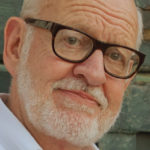 I was instructed to use no more than 300 words to write why I Love Lee so much. Three hundred words? I don’t need no stinkin’ 300 words. I have nothing to write about working with Lee. That’s because I was hardly working with Lee. Along with his sound compatriot, Ron Bochar, Lee would be on automatic pilot. As I realized early on, “This guy doesn’t need me.”
I was instructed to use no more than 300 words to write why I Love Lee so much. Three hundred words? I don’t need no stinkin’ 300 words. I have nothing to write about working with Lee. That’s because I was hardly working with Lee. Along with his sound compatriot, Ron Bochar, Lee would be on automatic pilot. As I realized early on, “This guy doesn’t need me.”
So I would go in, give him a few notes on the first reel, leave, have breakfast, read the paper, whatever, until I was called. I would then go to the mix studio to see the finished reel. I would make a few notes, then give a few notes on the next reel, then leave again, maybe for lunch or maybe catching some Zs at my home. Then I’d get the call saying that Lee was finished with reel two. I’d go to the mix studio again and give my notes and we’d go on to reel three, and onward. I would hardly call that working with Lee, even though he did mix about a half-dozen movies for me.
Is that why I love him? No. I love the guy because he’s a mensch. And because he is so damned adorable. It has been an honor and a pleasure for me over the years to know and almost work with Lee.
Frank Oz
Friend/Colleague; Director
 Ishtar in 1985 was my introduction to this wizard of mixing. From the start, it was apparent that he was not only a genius with the tracks, but was also dazzling with his skills at dealing with everyone in the room — from the loftiest producers, stars and the wildly talented and strong-minded director, to the machine room recordists, apprentices and the entire crew.
Ishtar in 1985 was my introduction to this wizard of mixing. From the start, it was apparent that he was not only a genius with the tracks, but was also dazzling with his skills at dealing with everyone in the room — from the loftiest producers, stars and the wildly talented and strong-minded director, to the machine room recordists, apprentices and the entire crew.
Lee has always been happy to share, with whomever is interested, what he’s doing and why. He was so generous and excited about the work. Bottom line: Lee is a mensch in the truest and most sincere sense of that word. I could go on (as so many others surely will and have) about his creativity, craftsmanship and wonderful ears — how he massages the tracks over and over, each time improving them until, little by little, they are just what they need to be and the narrative is wondrously lifted by his efforts.
This is Lee’s magic, and it’s both inspiring and comforting to see him at work. You just know that the end result will be as good as possible. But the other side of Lee’s greatness is his ability to command a room without ever being demanding or impatient — to communicate with a gentle, level-headed voice what can and should happen, while all the time being keyed into everyone’s ideas and ultimately the director’s wishes.
It’s because of all these talents that Lee is so loved and respected by all who have had the honor to sit by his side. And it’s because of his great work that the world has benefited from hundreds of beautiful-sounding films.
Eliza Paley
Colleague; Sound Editor
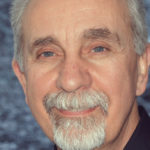 Lee Dichter’s talent, art and expertise in crafting the sound mix are always boldly in evidence, even when nuance and understatement are in order. When I met Lee at Photo-Mag in 1975, it was the first time I ever saw a mixing stage. He was friendly and gracious, and took time to show me around and explain the process. Since then, Lee has mixed several of the films I have edited.
Lee Dichter’s talent, art and expertise in crafting the sound mix are always boldly in evidence, even when nuance and understatement are in order. When I met Lee at Photo-Mag in 1975, it was the first time I ever saw a mixing stage. He was friendly and gracious, and took time to show me around and explain the process. Since then, Lee has mixed several of the films I have edited.
As in any final mix session, there is a confluence of dialogue (where his brilliance really stands out), sound effects and music. Add to this the opinions of the director, producers, editors and studio executives and one can only imagine how difficult it is for the mixer to come out on the other side with something amazing that satisfies all parties. Whether there’s a battle raging or a war of words, Lee has been successfully doing this his entire career.
From the first time I watched (and heard) him work, I likened him to an orchestra conductor bringing together all the instruments at his disposal. From the podium of his console, every element got consideration and respect, and then blended into the overall sound with clarity and care. His skill, patience and demeanor are to to be admired by all of us who collaborate for the overall good of the film.
Congratulations on this award for Fellowship and Service, and thank you for what I learned in your studio and what you brought to the films on which we worked together.
Bill Pankow, ACE
Friend/Colleague; Editor
 It was the very first film I worked on, still as an apprentice, when I learned of a magician whose approach to sound was an art in its own right. Lee Dichter is his name, I was told. His studio was in some odd place in an odd part of town, but it didn’t matter. Everyone flocked to him. And that is how it stayed: Wherever Lee went, directors and their films followed. Years later, when I found my path in music editing, I understood.
It was the very first film I worked on, still as an apprentice, when I learned of a magician whose approach to sound was an art in its own right. Lee Dichter is his name, I was told. His studio was in some odd place in an odd part of town, but it didn’t matter. Everyone flocked to him. And that is how it stayed: Wherever Lee went, directors and their films followed. Years later, when I found my path in music editing, I understood.
As Lee approaches his mixing board, his initial words are: “First, I will start with broad brushstrokes; we will get into detail and small brushes later.” That’s when I realized that sound has an image, that Lee is a painter and his canvas is the soundscape. I also learned that sound has a dimension, and to look at sound vertically — deep into Lee’s board where all the layers exist. The third dimension opens up; an imaginary one, yet real if we give in to the experience. Lee always gave in to the experience.
An exquisite storyteller, Lee knew that each film was a new page, a new tale to tell. Even with eyes closed, listening to his mix, the story would be crystal clear. That is the magic of Lee.
Suzana Peric
Friend/Colleague; Music Editor
 By the time I arrived at the Brill Building in 1985, Lee Dichter was already referred to as the best, a mixer with whom to aspire to work. To a young filmmaker fresh out of school, sound mixing was a mysterious and, although highly technical, almost alchemical process — and one that was absolutely fascinating to me.
By the time I arrived at the Brill Building in 1985, Lee Dichter was already referred to as the best, a mixer with whom to aspire to work. To a young filmmaker fresh out of school, sound mixing was a mysterious and, although highly technical, almost alchemical process — and one that was absolutely fascinating to me.
It was thrilling, just a short time later on Arthur Penn’s Dead of Winter, to find myself in the studio watching and listening to him work, and beginning to understand what he does. It was like fine-tuning one’s ability to hear and to better understand the potential and the poetry of film sound. That process continued unabated over the years, both in the studio and the movie theatre. And it is no less thrilling now. When we had the opportunity to do so again more recently, with Jon Stewart on Rosewater, it was an absolute joy, especially watching Jon’s wide-eyed sense of wonder and joy that I had experienced so long ago.
So, here’s to Lee, a master of his craft who has opened up the possibilities of moviemaking for so many.
Respect.
Jay Rabinowitz, ACE
Friend/Colleague; Picture Editor
I met Lee Dichter in the infancy of my career. He was already an accomplished master of the mixing desk. We worked at first on documentaries and later began working on features.
In those days, sound editors had assistants (one per editor). They were assigned reels and they cut the dialogue, the effects, the Foleys, and sometimes the ADR (if there was any) and the music. They both went to the mix for their reels.
As an assistant, I worked for several editors who, through laziness or generosity (no doubt a bit of both), indulged my proclivity for the thankless work of dialogue editing.
Being witness to a sound mix is a stultifying affair. Sitting through dialogue pre-mixes for most is a circle of hell, especially for dialogue editors, as they have little to do until they are accused of idiocy.
Unless, that is, if you are working with Lee Dichter.
I recall feeling thrilled, energized, even elated as he and I improvised and collaborated our way through the tracks. He made me a partner in the process and made me share a feeling that the dialogue track of a film was an aria that we helped sing to the audience — that the human voice was infinite in variety and emotion, and capable of profound beauty.
Besides that, he was a bit of a mixing magician of profound dexterity. (I am still baffled as to how he used the equipment then available to filter pink noise to sound like a cicada.)
As you well know, he is also a lovely fellow who, thankfully, is no saint. Be it known that he is capable of a good zinger.
Fred Rosenberg
Friend/Colleague; Sound Editor

 Lee Dichter is a consummate artist, a dedicated perfectionist, and a profoundly sensitive human being. He brings that exquisite combination to every film he works on, big or small. His intense focus and connection with the films he mixes are what bring them to the highest level. We have been fortunate to work with Lee on almost all of our feature documentary films, starting in 1984 with America and LewisHine to our most recent film, Ordinary Miracles: The Photo League’s New York.
Lee Dichter is a consummate artist, a dedicated perfectionist, and a profoundly sensitive human being. He brings that exquisite combination to every film he works on, big or small. His intense focus and connection with the films he mixes are what bring them to the highest level. We have been fortunate to work with Lee on almost all of our feature documentary films, starting in 1984 with America and LewisHine to our most recent film, Ordinary Miracles: The Photo League’s New York.
Collaborating with Lee is always a rewarding experience because he turns problem-solving into an art. Lee is always a pleasure to be with, and his presence in a recording studio or screening room has a welcome way of soothing jittery nerves and instilling confidence.
Thank you for your genius, Lee, and for your friendship. We will be forever in your debt.
Nina Rosenblum & Daniel Allentuck
Friends/Colleagues;
Producers, Directors, Writers
 The purpose of post-production is to make the best possible film from all the material available. In the more than four decades that I have been working with Lee Dichter, not only has he relieved the anxiety of creating a soundtrack, but he has always delivered magical and flawless results. Well known for possessing an incredible gift for blending dialogue, music and sound effects, he also has the perfect people skills to inspire trust and affection from everyone with whom he works.
The purpose of post-production is to make the best possible film from all the material available. In the more than four decades that I have been working with Lee Dichter, not only has he relieved the anxiety of creating a soundtrack, but he has always delivered magical and flawless results. Well known for possessing an incredible gift for blending dialogue, music and sound effects, he also has the perfect people skills to inspire trust and affection from everyone with whom he works.
I have often thought I have enjoyed editing so much that, given the chance, I would do it all over again. In that case, I would insist on Lee Dichter joining me.
Steve Rotter
Friend/Colleague; Picture Editor
 I am very lucky to have had the pleasure to work with Lee for over 30 years. In many ways, he was not only my teacher and trusted advisor but, most importantly, my friend. Never did a day pass that he didn’t ask about how my family was doing. He is a kind, gentle and caring soul that made coming to work every day that much more enjoyable.
I am very lucky to have had the pleasure to work with Lee for over 30 years. In many ways, he was not only my teacher and trusted advisor but, most importantly, my friend. Never did a day pass that he didn’t ask about how my family was doing. He is a kind, gentle and caring soul that made coming to work every day that much more enjoyable.
Everyone wanted to work with Lee, to the point where scheduling did not seem possible. He always had a way of keeping everything positive — “We’ll work it out” — even if I was skeptical. Lee was always giving of his time and treated everyone (the intern, the cleaning crew, the director) with the same respect and love as if he or she was a family member. He was always willing to let someone sit with him behind the board to learn and watch him perform his magic. I know many sound editors and mixers that have been fortunate to use their time with Lee to better hone their craft, or to start or further their own careers.
I will forever be indebted to Lee for everything he has done for me in my ventures, not only in this business, but in life. Here’s to you, my friend.
Jay Rubin
Friend/Colleague; Senior Vice President, Feature Film & Sound Sales,
Technicolor PostWorks, New York
 Lee Dichter refuses to be jaded. I wish I lived closer to Lee and got to see him more often, so his enthusiasm for our business and, more specifically, for the job of film re-recording mixer, would more regularly buoy my spirits. After long admiring his work on screen (or I guess that would be “on speakers”), I met Lee when he visited Skywalker Ranch. I had recently finished an arduous project — I honestly don’t remember which one — when we had lunch and Lee waxed poetic about how we sound mixers were the “luckiest people in the world.” He couldn’t imagine a more creative, a more satisfying, a more important, a more thrilling job.
Lee Dichter refuses to be jaded. I wish I lived closer to Lee and got to see him more often, so his enthusiasm for our business and, more specifically, for the job of film re-recording mixer, would more regularly buoy my spirits. After long admiring his work on screen (or I guess that would be “on speakers”), I met Lee when he visited Skywalker Ranch. I had recently finished an arduous project — I honestly don’t remember which one — when we had lunch and Lee waxed poetic about how we sound mixers were the “luckiest people in the world.” He couldn’t imagine a more creative, a more satisfying, a more important, a more thrilling job.
It took a matter of minutes for me to think to myself, “That’s the kind of mixer and man I want to be.”
It’s harder than it looks, and much harder than Lee Dichter makes it look.
Gary Rydstrom, CAS, MPSE
Friend, Colleague; Audio Designer,
Re-Recording Mixer
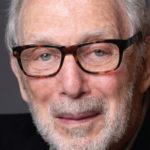 During the late 1970s and the early 1980s, Lee had developed an excellent reputation as a re-recording mixer of commercials, documentaries and industrial films while working at Photo-Mag on New York’s East Side. It was only natural for him to add theatrical feature films to his expertise. His work on Four Friends, Sophie’s Choice and other films during this time was key to his move to Sound One in 1983.
During the late 1970s and the early 1980s, Lee had developed an excellent reputation as a re-recording mixer of commercials, documentaries and industrial films while working at Photo-Mag on New York’s East Side. It was only natural for him to add theatrical feature films to his expertise. His work on Four Friends, Sophie’s Choice and other films during this time was key to his move to Sound One in 1983.
The first film he mixed there was Bob Fosse’s Star 80, on which I was fortunate to have been the supervising sound editor. It was apparent from the very beginning that Lee had no trouble establishing a perfect working relationship with the director. His talent, work ethic and personality were key to making this mix a success. Lee has always given his full attention to every film on which he works — big or small, good or not-so-good — and his participation is highly valued. These qualities have stayed with him throughout his entire career and are the reasons why he is so respected.
I can say, personally, that the times I spent mixing with Lee were some of the best moments of my career, and I am honored to be able to publicly congratulate him on receiving this honor. I treasure my association with Lee over the years.
Dan Sable
Friend/Colleague; Sound Editor
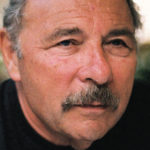 I first worked with Lee in 1982 on Robert Benton’s Still of the Night. Since that time, we’ve worked on about 25 films together with many very late nights in the studio. He was always very patient, professional and always collaborative — even at 2:00 a.m., when it was clear that we should stop. But he was always ready to improve the dialogue, effects and music.
I first worked with Lee in 1982 on Robert Benton’s Still of the Night. Since that time, we’ve worked on about 25 films together with many very late nights in the studio. He was always very patient, professional and always collaborative — even at 2:00 a.m., when it was clear that we should stop. But he was always ready to improve the dialogue, effects and music.
Lee always made the environment a fun place to work.
Maurice Schell
Friend/Colleague; Sound Editor
 Around 1990, I was a film distributor and had just acquired Orson Welles’ Othello. This masterpiece had languished for 40 years in storage with a horrible soundtrack. On top of that, most of it was out of sync. I immediately thought of Lee Dichter. He was fun, he was brilliant and he was a perfectionist. Who else could fix this?
Around 1990, I was a film distributor and had just acquired Orson Welles’ Othello. This masterpiece had languished for 40 years in storage with a horrible soundtrack. On top of that, most of it was out of sync. I immediately thought of Lee Dichter. He was fun, he was brilliant and he was a perfectionist. Who else could fix this?
In his usual gentlemanly way, he explained that he was totally booked for months. I asked if he would just look at the first reel for some advice. It was an incredible beginning and, as Lee watched, he turned to me and quietly said, “You bastard.”
I knew that as the consummate pro he was, Lee would have to work on it. And so, on evenings and weekends, we put this great film back together again. He is and always will be a true artist.
Julian Schlossberg
Friend/Colleague; Producer/Director
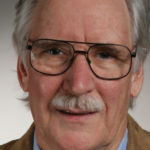 I first met Lee Dichter in the early ’80s when I was one of “The Dolby Guys” sent to New York to set up the Dolby Stereo encoders and to sit in on film mixes. “The Dolby” could sometimes be difficult and was often the butt of jokes in the mix room, but Lee was always helpful and welcoming to me, a newbie to the world of cinema sound from California.
I first met Lee Dichter in the early ’80s when I was one of “The Dolby Guys” sent to New York to set up the Dolby Stereo encoders and to sit in on film mixes. “The Dolby” could sometimes be difficult and was often the butt of jokes in the mix room, but Lee was always helpful and welcoming to me, a newbie to the world of cinema sound from California.
Ever a gentleman, fascinating storyteller, dedicated educator and mentor, Lee has always been open to new ideas while wielding his craft in the highest tradition of old-school filmmaking. Over the decades, Lee has become a great friend, a fellow nerd.
A nerd salute and warmest nerdly congratulations to Lee on this extremely well-deserved honor.
Tom Scott
Friend/Colleague; Vice President of Technology, EDnet (retired)
 Sitting in the darkness of the dubbing stage, we’ve revisited this scene over 100 times, but when the lead sings that song at the end of reel one, I glance down the mixing console at Lee and, like me, his eyes are welling with tears. Beyond the number and stylistic range of films Lee has helped shape, consider the thousands of filmmakers who have learned from his cardinal rule: It’s about what we as humans connect to on the screen.
Sitting in the darkness of the dubbing stage, we’ve revisited this scene over 100 times, but when the lead sings that song at the end of reel one, I glance down the mixing console at Lee and, like me, his eyes are welling with tears. Beyond the number and stylistic range of films Lee has helped shape, consider the thousands of filmmakers who have learned from his cardinal rule: It’s about what we as humans connect to on the screen.
Whatever shade of emotion, Lee’s goal is always to discover what resonates between the magic portal of the movie screen to every person in the audience and, invisibly, lures us to it. Few may notice Lee’s sleight of hand as it draws us into a film with our ears — that line of dialogue just slightly louder than the others…the music retreating for the reveal and swelling for the kiss.
I can recall dozens of instances where Lee would say, “I can make that better.” And indeed he does.
Beyond a mastery of the immense variables of a film’s last chance to improve before it lands in the multiplex, Lee’s knack is ultimately a love of film; it’s in his genes. His ancestors, after all, produced the first Yiddish motion pictures.
Not long ago, I faced a health issue that Lee had braved. He and his wife Sophie gave me the inside skinny on what to expect and how to prepare, and they checked in with empathy and encouragement instrumental to my progress.
More proof that the glue of Lee’s virtuosity is, above all, a generous spirit that transcends whether you are his client, colleague, disciple or friend. He will always do his best and, moreover, help you to do yours. He just can’t help it.
Paul P. Soucek, MPSE
Friend/Colleague; Sound Editor; Faculty member, CalArts School of Film and Video
 When people ask me with whom I would recommend mixing, I sometimes use the analogy, “With whom would you want to take a cross-country drive?” Aside from the obvious expertise and skill required to be a fine mixer, with whom would you want to spend two or three weeks, or a month, in a darkened studio?
When people ask me with whom I would recommend mixing, I sometimes use the analogy, “With whom would you want to take a cross-country drive?” Aside from the obvious expertise and skill required to be a fine mixer, with whom would you want to spend two or three weeks, or a month, in a darkened studio?
I met Lee and worked with him for the first time on Ishtar. That was Sound One, 1987. I’d heard a lot about him, his skills, his personality. People kept saying, “Don’t worry, Lee is mixing; you’ll be fine.” But there were Elaine May, Warren Beatty, Dustin Hoffman and Steve Rotter all playing an active part in the making of the film. It could be stressful mixing. Finally, the day came to pre-mix reel three. As I entered Studio D, the largest studio at Sound One at that time, there stood all the above-mentioned people talking in heated discussions across each other. The mood seemed, as often with Ishtar, very tense.
“How am I going to function in this environment,” I wondered. “Might I be thrown under a bus?” Lee must have seen me entering the studio, carrying an armful of cue sheets. He stepped away from the console and away from the group.
Approaching me, he said, “Hi, you must be Ira. I’m looking forward to working with you.”
Looking forward to working with you…Looking forward to working with you… Those words, that sentence. What welcoming words to hear — from a mixer.
When you think of Lee Dichter, you think of a collaborative artist. Beyond his vast experience and talent, what Lee has always brought to a mix has been compassion, warmth, reassuring support — all the qualities you’d expect in a mensch.
Ira Spiegel
Friend/Colleague; Sound Editor
 It has been my great pleasure to work with Lee on 20 or so projects starting in the ’80s and continuing till his retirement. We’ve worked together on projects for the Coen brothers, Mike Nichols, Barry Sonnenfeld, Robert Altman and several others.
It has been my great pleasure to work with Lee on 20 or so projects starting in the ’80s and continuing till his retirement. We’ve worked together on projects for the Coen brothers, Mike Nichols, Barry Sonnenfeld, Robert Altman and several others.
Lee’s skills as a dialogue mixer are unsurpassed, particularly his ability to match ADR to production. I also love the way he has always treated me (and I’m sure I’m not the only one) as a collaborator and partner in crime. Lee is a sweet, charming and caring human being as well as a fantastic re-recording mixer. Long live the magic of Lee Dichter!
Philip Stockton, MPSE
Friend/Colleague; Sound Editor
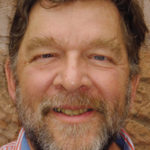 Lee Dichter is the best mixer I’ve ever seen. Many years ago, a few years after I started mixing, I thought I was really hot, a great mixer, the tops. Then a friend asked me to sit in on his mix with Lee, whom I had met but never seen mix. Sure, why not? Let me check him out. A few hours later, I knew that I was just a beginner, and watched a true master at work.
Lee Dichter is the best mixer I’ve ever seen. Many years ago, a few years after I started mixing, I thought I was really hot, a great mixer, the tops. Then a friend asked me to sit in on his mix with Lee, whom I had met but never seen mix. Sure, why not? Let me check him out. A few hours later, I knew that I was just a beginner, and watched a true master at work.
A few years after this, I began to work at Sound One, Lee’s home base. I spent the next 25 years working with Lee, sometimes at his side. In all that time, I was always in awe watching him work.
The thing about Lee is that, first of all, he is a superb technician, in the sense that he knows how to get the equipment to do what he wants. Secondly, he has an extremely refined sense of what he wants the track to sound like, how to level it out and move the music and effects around the dialogue — with everything in balance and in support of the aesthetic of the film.
But the greatest thing that Lee has is this amazing sense of the feelings in the room. He has an almost psychic link to the director and the editor. He can sense a twitch in their posture, knows what the issue is, and can fix it before a word is said.
He is quiet, helpful, supportive and friendly — on both a professional and a personal level. I may be exaggerating, but not by much.
As I said, Lee Dichter is the best mixer I’ve ever seen.
Dominick Tavella, MPSE, CAS
Friend/Colleague; Re-Recording Mixer
 I had the privilege of working with Lee on two films that I edited, Changing Lanes and The Village. Lee’s passion for dialogue is unparalleled. He is a sculptor of words.
I had the privilege of working with Lee on two films that I edited, Changing Lanes and The Village. Lee’s passion for dialogue is unparalleled. He is a sculptor of words.
I remember him showing me how he dealt with an actor’s monotone delivery. He would deftly shape the words, hitting the consonants harder to give emphasis and rhythm to the words, playing the board like a piano. Lee is the master of the New York tradition of dialogue-driven films. The subtlety and music of beautifully written and acted dialogue is his art.
Studio L in Sound One was his domain where innumerable great films passed through the magic of his touch.
Chris Tellefsen, ACE
Friend/Colleague; Picture Editor
 A film re-recording mixer needs to have the qualities of a sound artist, an engineer, a diplomat and a psychotherapist — in roughly equal parts. Ladies and gentlemen, I offer Lee Dichter as the prototype for all mixers. His sharp ears and kindhearted bedside manner have delivered into the world more sonic masterpieces than perhaps anyone else I know. He’s a joy to be around, and a hell of a nice guy in a tough line of work where honors are rare.
A film re-recording mixer needs to have the qualities of a sound artist, an engineer, a diplomat and a psychotherapist — in roughly equal parts. Ladies and gentlemen, I offer Lee Dichter as the prototype for all mixers. His sharp ears and kindhearted bedside manner have delivered into the world more sonic masterpieces than perhaps anyone else I know. He’s a joy to be around, and a hell of a nice guy in a tough line of work where honors are rare.
My sincere congratulations to Lee for this profoundly well-deserved honor from the Editors Guild.
Randy Thom, CAS
Colleague; Sound Designer, Sound Editor, Re-Recording Mixer
 I cannot think of my career without thinking of Lee Dichter. I was introduced to Lee in 1984 as a first assistant on a feature that he was mixing. After a few trips to the stage, he motioned for me to sit next to him at his console. As his hands glided over the faders — blending backgrounds, modulating music and equalizing dialogue — he would generously narrate what he was doing and why. It would be the beginning of my long apprenticeship with Lee. Over the years, he shared his immense knowledge of his craft helping me, as well as countless others, to become better storytellers.
I cannot think of my career without thinking of Lee Dichter. I was introduced to Lee in 1984 as a first assistant on a feature that he was mixing. After a few trips to the stage, he motioned for me to sit next to him at his console. As his hands glided over the faders — blending backgrounds, modulating music and equalizing dialogue — he would generously narrate what he was doing and why. It would be the beginning of my long apprenticeship with Lee. Over the years, he shared his immense knowledge of his craft helping me, as well as countless others, to become better storytellers.
When I became a picture editor, Lee was the first person I asked my producers to question about his availability. He was often booked, but I occasionally caught a break. And when that happened, I was guaranteed to learn more, have fun and garner the thankfulness of my directors who loved Lee’s talent and personality.
One can say that Lee is a legend, an institution, a mixer extraordinaire — and all that would be true. But he is also a caring and gracious person who has been a friend these last 30 years, and for that I am grateful.
Barbara Tulliver, ACE
Friend/Colleague/Mentee; Picture Editor
 Over the past 30 years, it’s been my good fortune and an honor to have worked on many films on which Lee has been the mixer. Whether I was a sound apprentice, assistant or editor, he always treated me kindly and made me feel a part of the project.
Over the past 30 years, it’s been my good fortune and an honor to have worked on many films on which Lee has been the mixer. Whether I was a sound apprentice, assistant or editor, he always treated me kindly and made me feel a part of the project.
A great re-recording mixer and a great friend! Congratulations, Lee, on a lifetime of achievements.
David Wahnon
Friend/Colleague/Mentee; Sound Editor
 Technology can be taught, systems and protocol can be taught. Some things can’t be taught. Lee is a natural born mixer. He has an amazing ear and an uncanny ability to extract the emotional content expressed through sound.
Technology can be taught, systems and protocol can be taught. Some things can’t be taught. Lee is a natural born mixer. He has an amazing ear and an uncanny ability to extract the emotional content expressed through sound.
In a mix room, he is both a collaborator and a mentor, a disappearing role these days. I’ve known and worked with Lee for 40 years and what shines through more than any one story is his humanity, which has informed all of his work and his working relationships. He is the best!
Deborah Wallach
Friend/Colleague/Mentee; Sound Editor
 Lee Dichter and I have an over-40-year-long relationship, which began at his family-run sound studio Photo-Mag and continued to the hallowed halls of the Brill Building and Sound One. In the tightly knit New York City feature film world of the ’70s, there was an anxious white-knuckle mentality. Lee changed all that. How, you may ask?
Lee Dichter and I have an over-40-year-long relationship, which began at his family-run sound studio Photo-Mag and continued to the hallowed halls of the Brill Building and Sound One. In the tightly knit New York City feature film world of the ’70s, there was an anxious white-knuckle mentality. Lee changed all that. How, you may ask?
Well, starting with his squeaky, circus carnival clown hammer, followed by his ability to tell great stories while at the same time manipulating the console to make great soundtracks, Lee initiated a new trend of haimish mixing.
What a list of films in which he’s been involved; beyond impressive! Another sign of greatness is the many directors who repeatedly sought Lee out. In my case, it was mainly Arthur Penn.
Then, there is Lee Dichter the person, a generous man with a great active partner in Sophie; together they remain involved in the film community. They appreciate culture and all the arts, and seem to lend their support wherever needed.
So, Lee, I raise a glass to your years of service. It’s been a pleasure to know you, work with you and commiserate with you. Keep on keeping on.
Jeffrey Wolf, ACE
Friend/Colleague; Picture Editor, Director
 I first met Lee Dichter on a rainy night in Manhattan. Lee had been in contact with Sound One’s principals about joining the company, and I had been asked to sit down with him and introduce him to Sound One. His reputation was already notable, and I was eager to meet him.
I first met Lee Dichter on a rainy night in Manhattan. Lee had been in contact with Sound One’s principals about joining the company, and I had been asked to sit down with him and introduce him to Sound One. His reputation was already notable, and I was eager to meet him.
The meeting went well. I was impressed with Lee’s warm personality and openness. After he joined us at Sound One, I was able to watch him work. That friendly personality, great ear, good judgment and technical ability made for an incredibly pleasant studio experience.
Lee and I worked together on three projects: Beat Street, Finnegan Begin Again and Maximum Overdrive. We worked well together and, since we both lived on Long Island, travelled home together on many of those late, late nights. That’s when I got to know the man as well as the mixer. As we used to say in the Bronx, Lee is a mensch, a caring and concerned family man and a very decent human being.
I could go on and list his incredibly impressive credits and honors, but they are listed elsewhere in this book. I’m proud to have worked with him and proud to call him a friend.
Mel Zelniker
Friend/Colleague; Re-Recording Mixer




